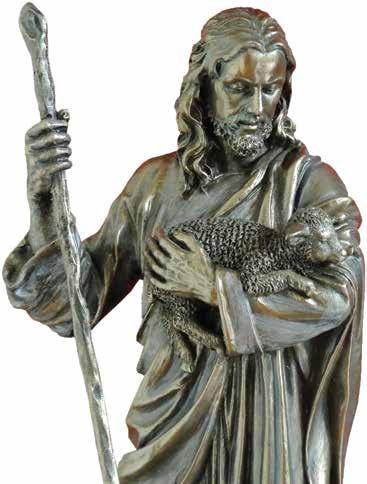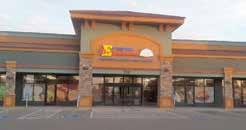
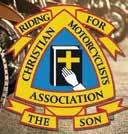

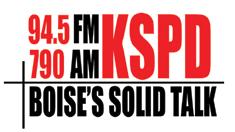











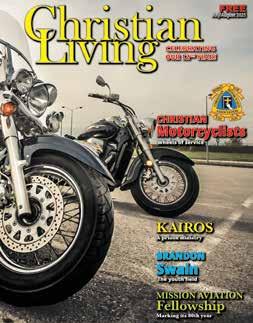
PUBLISHER
Sandy Jones • 208-703-7860 christianlivingmag@gmail.com
EDITOR
Gaye Bunderson editorgaye@gmail.com
Submit story ideas, article submissions & press releases
GENERAL INFO christianlivingmag@gmail.com 208-703-7860
ADVERTISING & SALES
Kimberly McMullen • 208-703-7509 kim.bcliving@gmail.com
GRAPHIC DESIGN
Denice King • 208-918-5190 www.greentreedkdesign.com
Girr from Pixabay.com
CONTRIBUTORS
Larry Banta, Steve Bertel, Rick Chromey, Tom Claycomb III, Roxanne Drury, Joan Endicott, Cory Freese, Leo Hellyer, Natalie Holsten, Rosie Main, Gary Moore, and Bethany Riehl


By Sandy Jones
Beep. Beep. Beep.
My husband’s IV is occluded...again.
Beep. Beep. Beep.
The lady across the hall is waiting for a nurse to respond.
Beep. Beep. Beep.
Someone’s heart rate is too high.
You may have already guessed my dear sweet hubby has been back in the hospital. He’s actually been in the hospital three times, and spent two weeks in subacute rehab since my last column, so I’ve had ample time to get accustomed to these beeps. Why beeps? It’s to draw attention to something that could be potentially urgent. Each one sounds a little bit different, just as each one has a different meaning or cause.
This all started the first week of April when my husband was quite suddenly so ill in the wee morning hours that I had to call the paramedics for assistance. I spoke with the efficient dispatcher, giving her our address and sharing his symptoms. She assured me paramedics were on the way.
I put the dog in the office and closed the door. Secured the cat. Unlocked the front door, and moved the exercise bike out of the way. All while running back and forth to check on Steve.
“Where are they?” I frantically asked myself. “They should have been here by now!”
I grabbed my phone and dialed 911 once again. The same dispatcher answered the phone. “Can you check to be sure they’re actually on the way, please? We don’t live that far away, I should at least be hearing sirens by now.”
“They are on the way, ma’am; they’ll be there as soon as they can be.” She rang off.
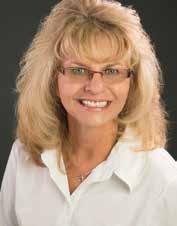
Soon I saw the flashing lights on the ambulance and accompanying fire truck coming around the corner at the end of the block. Apparently they don’t run with sirens at 3:30 in the morning. How thoughtful for our neighbors. I no longer cared that I couldn’t hear them; I could see them. They were there. Help had arrived.
Why share this? Because my actions that morning remind me of Doubting Thomas and his conversation with Jesus.
Then he said to Thomas, “Put your finger here; see my hands. Reach out your hand and put it into my side. Stop doubting and believe.”
Thomas said to him, “My Lord and my God!”
Then Jesus told him, “Because you have seen me, you have believed; blessed are those who have not seen and yet have believed” (John 20:2729 NIV).

I opened the bedroom curtains and went back over next to Steve to reassure him that they’d be there soon, while watching him gasp for air, regardless of the fact that the pulse oximeter said his O2 levels were just fine.

All too often we get caught up in the moment, and we take our eyes off Jesus. We forget to believe just because our eyes don’t see, or as in the case of the ambulance, ears don’t hear.
And as I have had ample time to hear those “beeps” for attention, I also had time to reflect on how an emergency, or serious illness, can suddenly impact our prayer life. Our prayers may go up with the fervency of those continual beeps, one on top of the other; or one might become so caught up in the urgency of it all that they might become overwhelmed and suddenly their prayer life is as dry as the desert we live in.
Let me assure you that I knew then, just as I know now, that God the Father, Jesus the Son, and the Holy Spirit are with us in both the good times and the bad. Unlike my shaky faith in the ambulance that morning, I knew that Steve and I were not alone. If you are going through a time of trial, like so many are right now, please know that God is with you. Regardless of whether you talk to Him all the time, or even if you haven’t reached out to Him in years. He’s there waiting to hear from you, and He will see you through no


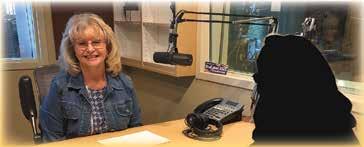

matter the situation or its outcome. He wants to be there for you.
Steve continues to recover and gets a bit stronger each day. So many of you have prayed alongside of us these past 19 months, and we appreciate every single prayer that’s been uttered on our behalf. This is not our first tough chapter; we learned 10 years ago, through our daughter-in-law’s battle with cancer, that God is always faithful. His promises then in Romans 8:28 are as true today.
And we know that in all things God works for the good of those who love him, who have been called according to his purpose (Romans 8:28 NIV).
Until next time…
God Bless! n
I just want to take a moment to thank all of our readers who consistently shop our advertisers. When you do support our advertisers please be sure to thank them for the part they play in this ministry — we simply could not do what we do if it weren’t for their support!
BOISE — Tickets are officially available for Dark Night, the groundbreaking immersive tap dance performance poised to redefine perceptions of endurance. Even better? This once-ina-lifetime opportunity is absolutely free to attend.
Conceived by acclaimed tap dance artist Andrew Nemr and directed by Tony Award nominee Tony Yazbeck, Dark Night is set to make its world premiere at 7 p.m. Friday, August 8, at TRICA, 1406 W. Eastman in Boise. Audiences may now secure their free tickets by visiting https://darknightlive. eventbrite.com.
Dark Night is a living performance piece that delves into the profound human experience of navigating moments when all familiar anchors are stripped away. Through a 12-hour solo improvised tap dance performance by Nemr, coupled with stunning immersive projections by Stephen Proctor, the audience — both in-person and online — will be invited into a space for contemplation, reflection and, ultimately, to honor the choice to endure.
Inspired by the concept of the “dark night of the soul,” a period of deep spiritual struggle and uncertainty ultimately leading to profound spiritual growth and transformation, this performance aims to forewarn, guide, and encourage those who may be encountering or have encountered such an experience. Throughout history, giants of the faith have struggled with the “dark night” and come through stronger and better for it. “It's often seen as a necessary part of spiritual growth and transformation, a time when old beliefs and identities are shed to make way for new ones,” according to information at “Dark Night of the Soul Meaning.”
The performance will be accompanied by prompts designed to spark introspection on personal resilience and hope. n
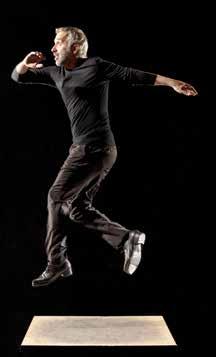





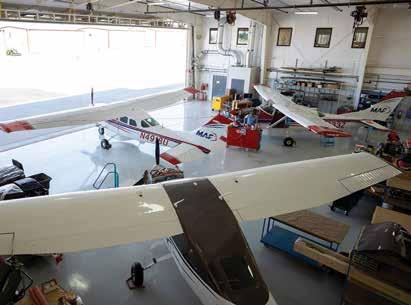
By Natalie Holsten
Tours at the headquarters of Mission Aviation Fellowship (MAF) in Nampa start with a history lesson.
Just inside the entrance stands the rusted frame of the Piper Family Cruiser flown by MAF pilot Nate Saint in the jungles of Ecuador in the 1950s. Visitors learn how Saint, along with four other missionaries, lost their lives in 1956 when trying to take the good news of Jesus to the Waorani people, a people group steeped in animistic beliefs.
Alyssa Busse, who directs tours for MAF, says when people see Saint’s plane, reactions range from wide-eyed stares of students studying giants of the faith, to a single emotional moment from a young woman who held Nate Saint’s story as a significant part of why she pursued mission aviation.
“I have met some who don’t know the story, but also those who were alive when the news reached the U.S. and remember hearing about it,” Busse said. “Either way, this tends to evoke awe in our visitors.”
Service spanning 80 years
MAF celebrates 80 years of service this year. The organization was founded in 1945 by World War II pilots who dreamed of using aviation to help support missionaries around the world in reaching isolated people with the gospel.
One of MAF’s founders, Betty Greene, was also its first pilot, and flew the inaugural flight in 1946, carrying two Wycliffe missionaries to Mexico in a red Waco biplane.
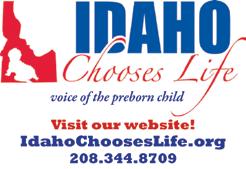
Today, with a fleet of 42 single-engine aircraft, MAF supports the work of close to 300 church, mission, and non-profit organizations working in hard-to-reach parts of Africa, Latin America, Asia, and Eurasia.
To get a sense of the impact MAF planes and staff have around the world, visitors can step into the rotunda at the center of the ministry’s main office building. On one side is the vision: To see isolated people changed by the love of Christ. Opposite is the mission statement: Serving together to bring help, hope, and healing through aviation.
“The heart of MAF’s ministry has not changed in 80 years,” said David Holsten, MAF’s president and CEO. “At its core is sharing the love of Jesus Christ so others can be physically and spiritually transformed.”
A video monitor in the rotunda scrolls through recent images from countries like Lesotho, Ecuador, and Indonesia, showing how MAF continues to make a difference today. A photo flashes of a smiling child with a bandaged head. MAF flew him from his village in Papua, Indonesia, to a hospital where he received lifesaving surgery.
The photo changes to a group of Bible teachers in front of an MAF plane in the Democratic Republic of the Congo. They plan to teach at a remote Bible school for several weeks before MAF picks them up.
Another photo shows a group of missionaries in Mozambique left stranded after a cyclone damaged roads and wiped-out bridges. MAF safely transported them all, making a tangible difference in the lives of those living in hard-to-reach places.
MAF has around 600 staff members worldwide, with a third of those working at MAF headquarters in Nampa supporting the overseas programs. Located on 22 acres next to the Nampa airport, the campus includes administrative offices, short-term apartments for missionaries who come through for training, and an RV park to accommodate MAF’s many volunteers.
The campus also includes aircraft maintenance hangars, which, according to Busse, are a highlight of tours.
“There’s a mezzanine overlooking one of the hangar floors that offers a great view of several planes from above,” she said. “This is where the whole mission is made real for many people — they’re seeing the tools of our ministry, smelling the aroma of maintenance work, and hearing equipment being used by expert hands.”
MAF’s fleet includes Cessna 206s, Cessna Caravans, an amphibious Cessna Caravan, a Pilatus PC-12, and several Kodiak aircraft, manufactured in Sandpoint, Idaho. Airplanes are purchased with funds from donors and prepared for service at MAF’s hangars in Nampa.
Preparations might include avionics upgrades, installation of a cargo pod on the belly of the plane, and the addition of mud flaps in anticipation of serving on unimproved airstrips. Once an airplane is prepared, staff surround the plane for a prayer of dedication, asking the Lord’s blessing on the airplane and all those who will fly in it.
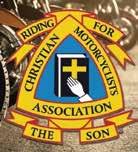



Ferry pilots fly the plane to its place of service where it’s put to work transporting medical teams and supplies, delivering disaster relief, and flying teachers, Bible translators, evangelists, and ministry teams.
“Our planes are tools, not jewels,” said Chad Irwin, MAF’s director of operations in Nampa. “While we work hard to keep them in the best shape possible, we also recognize that they are tools to be used for God’s kingdom work. So, getting them dirty, sweaty, and even bloody at times is a big part of reaching isolated people with His love, and that makes these machines important to us.”
MAF relocated to Idaho in 2006 from Redlands, Calif. The lower cost of living and Idaho’s landscape were major draws. Idaho’s backcountry serves as the perfect training ground for MAF pilots. Learning how to maneuver in tight mountain valleys and landing on dirt and grass airstrips prepares them for the type of flying they’ll be doing in rugged, remote areas of the world.
Training at the Nampa facility is enhanced by two turbine aircraft flight simulators installed in 2023. With safety a high priority, the simulators allow MAF pilots to practice real world scenarios and emergencies that can’t be done in actual aircraft due to the danger involved in allowing an aircraft to spin or stall or have an engine failure.
In addition to the training pilots and mechanics receive at MAF, all staff heading overseas — including IT and finance workers, teachers, and spouses — take classes in stress management, cross-cultural living, spiritual warfare, and security practices.
Looking ahead, MAF leadership anticipates a need for mission aviation for many years to come.
“MAF operates in many parts of the world with governments that haven’t been able to effectively improve infrastructure,” Holsten said. “In many places, MAF is the only way for people living in hard-toreach areas to get supplies or help quickly.”
Holsten said MAF leadership is always on the lookout for new ministry opportunities and remains open to how the Lord might lead the organization to serve in new places, including the country of Nigeria.
“There is a mission hospital in Nigeria that would like us to serve there, and we have had some visits with the civil aviation authority in the country,” he shared. “They are very interested in having us start a commercial service there. It is a long process but it looks like we will be adding Nigeria as one of the countries where we serve in the future.”
Tours at MAF end where they started, back at Nate Saint’s plane. It’s not unusual for Busse to hear visitors make comments like, “I didn’t know MAF went to all these places,” or “MAF serves in more ways than I knew about.”
As visitors prepare to leave, Busse often prays with them, and asks them to remember to pray for the ministry of MAF, for the partners and people served, for the safety of the pilots, mechanics, and their families living in far-flung corners of the globe.
“MAF is operating in risky parts of the world meeting the most dire needs of the isolated and downtrodden,” Busse said. “To have the public share the burden of prayer with us is the strongest impact anyone can have.” n
To learn more about MAF, visit maf.org. To schedule a tour, visit maf.org/tours.

By Joan Endicott
“A Spanish father, desperate to reconcile with his son, placed an advertisement in the local newspaper, El Liberal. The ad read: ‘Paco, meet me at the Hotel Montana at noon on Tuesday. All is forgiven. Love, Papa.’ Paco was a common name in Spain, and when the father arrived at the Hotel Montana the next day, he found eight hundred young men named Paco waiting for their fathers, all hoping for the forgiveness they so desperately needed.” — Ernest Hemingway, shared in his collection titled, “The Capital of the World.”
Friend, pause, take a deep breath and ponder this scene and its profound meaning. In that moment, we witness the raw vulnerability and unyielding hope of a heart that desires restoration. It’s quite an emotional picture in our mind’s eye, imagining these eight hundred young men demonstrating the universal longing we all have for forgiveness — a call planted deep within our souls by our Heavenly Father. Psalm 34:14 tells us to “seek peace and pursue it,” a command that not only guides us in our relationships but also in our walk of faith.
Our hearts yearn for reconciliation. Forgiveness is not a one-time act; it is a continuous journey. Whether we are reconciling with a loved one or facing the internal battles that come from past hurts, it all affects our peace.
Recently, on a coaching call with one of my all-time-favorite clients who I’ll refer to as “M,” I was again reminded of the power of reconciliation. M’s life is one of remarkable honor, integrity and character — a man whose faith, family, and charitable work are among his highest priorities. Not only is he a very successful author, speaker and business leader, but he also navigates unimaginable situations in the Middle East and across multiple countries as he travels. Over the seven years I have had the honor of coaching him, I have witnessed transformations borne out of trials and moments of deep introspection.
On that call, M recounted the staggering challenges he’d faced just in the week since our last call. He lives in places where freedom is only a dream, not reality. Countries where decisions are made for you — decisions that could shatter a life overnight; and once again, M’s faith was put to the test. Though the situation was shocking, traumatic, scary and filled with uncertainty, he responded with the unwavering resolve of someone who has learned the true meaning of peace. In his own reflective words, he said: “Joan, I am so grateful to God and to you for this journey. With all the things we’ve worked through, I’m in a great place! Everything is set so my family would be well taken care of financially and otherwise — most importantly, my family relationships are great! It’s a wonderful feeling, my friend. I’m so grateful my house is in order!” I could hear and feel the deep, abiding peace in his voice — the freedom in declaring, “My house is in order!” This declaration is not just a statement about financial stability or external success; it is about the inner order that comes when you commit to healing relationships and live out God’s call for reconciliation.
It is precisely in the fire of adversity that God refines our character. Our struggles have a way of clarifying what is most important. When chaos surrounds us, our hearts cry out for order and peace. And God, in His mercy, provides us with opportunities to restore what has been broken.

In my desire to stay focused on what matters most, I often remind myself: Crisis Creates Clarity. In the midst of uncertainty, pain and crisis, what truly matters becomes crystal clear. Whether it’s the poignant story of Paco and his father or M’s brush with uncertainty in some harsh and repressive environments, the truth remains the same: our hearts hunger for genuine connection. We long for the peace that comes when every mistake is confronted, every hurt addressed, and every conversation held in love.
Ask yourself today: Can you declare, “My House is in Order!” with the people and relationships that matter most to you? Just imagine the transformation if every unresolved issue were met with intentional and courageous conversation. Picture the peace that would fill your heart if every stone of resentment were removed from the foundation of your relationships. Just think about it — each step of resolution not only mends bridges but also strengthens the very structure of your life.
I encourage you, dear one, to take a moment and examine your innermost relationships. Are there conversations you’ve been avoiding? Does it feel like something has unraveled or things are left undone or unsaid? Have unspoken words slowly eroded the foundation of your trust? In these moments, God is calling you to action. The path to a “house in order” is paved with these Truths: forgiveness, courage, and the humility to extend grace even when it is hard.
No relationship can ever be perfect on this side of heaven. We live in a world where, unfortunately, hurting people — hurt people. There will always be those who, because they are unhappy, want others to be unhappy and seem to thrive on creating discord. When I first read the following statement a few years ago, it had a visceral effect: “Never feel guilt over cutting ties with someone who handed you the scissors.” – Anonymous It was as if I’d suddenly been granted permission to protect myself from unhealthy people who try to control, criticize, manipulate and bully those around them. In fact, just last year I signed a contract with a client who I didn’t know but was a referral from someone I absolutely adored. Naturally, I thought birds of a feather flock together and all that jazz. Unfortunately, it was the absolute worst client experience of my 40 years as a speaker, for some of those very reasons. I share this simply to let you know that if people have tried to control you, devalue you and take advantage, you are not alone. I hope this serves to encourage and empower you to ensure you are taking steps to protect your well-being. While you are called to love and value others, you also get to live in the value and worth God gave you, as His image bearer!
I felt that was an important point to make even though in this context I’m focused more on what we can do when it comes to those relationships that truly matter. I call these interactions Courageous Conversations. They are the discussions that require us to be vulnerable and strong at the same time — to let go of past hurts and embrace future hope.
It takes courage to initiate these connections. We must pause, reflect, and then step forward, with no guarantee of our desired outcome. But if our motivation is love and if we are anchored in God’s Truth and wisdom, then every step is a step toward a future where our heart’s foundation is intact, where our “house” is truly in order. The Bible is not only God’s Holy Word, it is overflowing with practical counsel for living our best life.




• “If your brother offends you, go to him.” — Matthew 18:15
• “Don’t let the sun go down on your anger.” — Ephesians 4:26
Remember, these conversations are not meant to police the actions or reactions of others. They are about owning our part and about pursuing the peace that God intends for us. As Romans 12:18 exhorts us, “If possible, so far as it depends on you, live peaceably with all.” Our focus must always be on what we can control — our attitudes, our words, and our willingness to forgive.
Here are some steps I recommend for those ready do their part in restoring relationships:

1. Lead with Love-if you’re not acting in love, pray and wait until you can. Before engaging in any challenging conversation, seek God’s guidance. Allow His love to be your compass, making each interaction one of grace and truth.
2. Evaluate Everything-ignore nothing! Begin with a thorough assessment of all the relationships that matter most to you. Write down the names, the memories, and even those seemingly insignificant details that speak of areas where peace is missing. This honest self-audit is the first step in understanding where you have opportunities to mend a broken bond.
3. Heart Dump-write everything out. Allow yourself the freedom to express your emotions and frustrations on paper. Let every unspoken word and every unresolved grievance find its way onto that page. By doing so, you begin to sort through the clutter of your heart, making space for healing and forgiveness.
4. Reach Out-start with the smallest. Choose one relationship to mend. Sometimes, beginning with the most minor can build the confidence you need to tackle deeper wounds. Each small conversation

builds the foundation of trust and opens your heart’s door to more.
5. Embrace Comfort and Confidence-building courage. As you experience the therapeutic release from solving the smaller issues, you’ll naturally grow equipped to address those relationships that require a bit more bravery. Remember, every courageous step is a leap toward a more ordered and peaceful life
6. Control Your Controllables-focus on what you can control. You are not responsible for how others respond. Focus on your attitude and actions, knowing that you are accountable to God first. He calls you to simply do your part, trusting Him with the rest.
No matter how our story began, we are writing the next chapter right now. Since God’s mercies are new every morning (Lamentations 3:22-23), then so is opportunity for restoration through faith, courage, and grace.
- If reconciliation is possible, pursue it.
- If healing is needed, seek it.
- If letting go is necessary, release it.
Before this day ends, ask God and yourself: “Is my house in order?” If anything feels undone, simply take that first step. You are not alone in this journey. The Prince of Peace Himself loves you more than you can imagine and desires to walk with you. Let today be the day you take the first step. n
Grab your FREE copy of Joan Endicott’s “I Get To!”® book and be one of the first to be notified when her 2nd one if available “I Get To!”® Own My Worth! at www.JoanEndicott.com.

Joan is an Award-Winning Keynote Speaker, Author and Coach whose coaching has reached over 30 countries. Find out more at www.JoanEndicott.com.







By Tom Claycomb III
God has a way of cutting to the chaff in a minimal amount of words. So to follow His suit, hence the title. I dropped my consulting deal, where for five years I flew out for three weeks and then home for a week, then the last five years flew out for two weeks and home for a week.
So consequently, I now have a more flexible schedule. So it hit me: I want to be used more by God than ever before. I mean come on, if we’re going to be Christians then why halfway do it? When I got my life right with God I told Him I didn’t want to go to church on Sunday and that was it. I wanted a relationship with a God that sent fire down from heaven and blew up stuff. You know, like a red-hot relationship that was on fire. (Turns up, that’s also what He wants.)
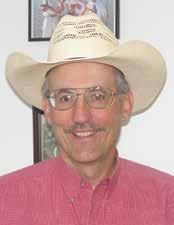
I want to be used more. You know, hit another level. Don’t get me wrong, things are great; but once you’ve tasted the things of God, you always want more. I wanted more Christian writing/speaking opportunities. I get to give a lot of outdoor seminars around the country. By the time you’re reading this I’ve probably conducted over 20 seminars this year, mostly at the big shows.
But now I had a more flexible schedule and a desire to do more. Well, suddenly out of the blue I received an invitation to do a twoday Zoom call in which I’d be taught how to hit a new level, have a bigger outreach and more witnessing opportunities. Great! Just what I’d been praying for!
The Zoom call started off with the lady giving her testimony but shortly thereafter it turned into a sales pitch to pay a monthly fee for her software -- then I’d become rich, which would give me a bigger platform and have more money and then God could use me more. What? I’ve missed a lot of witnessing opportunities because I was ashamed of the gospel because of a bad lifestyle, but I’ve never not gotten to witness because I didn’t have enough money. After 1½ hours I hung up.

Shortly thereafter I received another invitation to an upcoming event at the Boise basketball stadium. There was going to be a lot of big-name speakers that I’d heard a lot about and respected.
They told me that they’d help my ministry hit new levels. I’d have a bigger platform and be taught how to be a better and more effective witness for Christ. This one really sounded good.
D-day finally came. Whoa, the first few speakers started off basically on how they did this, that or another and made a lot of money. This event was totally about making money. They had totally misrepresented the purpose of their program. They spoke a little Christianese to make it sound Christian but it was all whitewash.
The veil was torn wide open by noon though. This one guy told how if you bought his software to make good real estate buys — not for the normal $1,099 per month but for a special deal. We’d get rich and could give more money to God’s work, have more money to travel, have more free time and could leave more money for our kids and, oh yeah, be used more by God as a side note. Then he said, come down to one of the designated areas right now and sign up for only $99.99 per month.
There was one speaker that I was really wanting to hear but by now I was up to here and could handle no more. I looked at my buddy and said something about filthy lucre. He didn’t say a word but handed me his cell phone which had a pertinent verse of the same manner pulled up on it. I got up and left, regretting wasting half a day and paying $20 to do so.
I don’t care if you want to do a seminar on how to make money. That’s why we work. But don’t use God’s name and your ‘being a Christian’ to do so. Someone needs to pull the sheepskins off the backs of these wolves that have infiltrated the church!
A month later a marketing firm contacted me. They said they hunt for people they can do something with. They said they could help me get more publications, speaking engagements, etc. They had


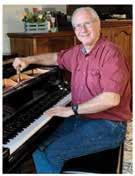
various levels you could do. At one level they’d fly me to New York and I’d be on five TV shows and get in Forbes magazine, etc. They were good, no doubt.
After 1-2 Zoom calls, one of their reps asked me what I wanted. I said well, sure, I’d like to write for more outdoor publications and get more outdoor speaking engagements, but what I really wanted was to write for more Christian publications and have more speaking engagements but… I didn’t want to get paid for the speaking. Maybe if I had to fly somewhere they could pay for the plane ticket but I could stay with someone in the church.
This group sounded good but suddenly I got thinking. You know, if Eve hadn’t have eaten the apple, the devil would have come back with a caramel apple! Was this third deal just a watered-down version of the first two? If I want more money I’ll just go back and do more consulting. I don’t want a lot more money. I want to be used more by God.
So I’ve come to three conclusions if I’m going to be used by God. 1. I don’t want what influence I can gain by hiring a glitzy marketing company. I WANT WHAT ONLY GOD CAN DO.
2. 2 Chronicles 16:9 teaches us that, “The eyes of the Lord are running to and fro throughout the whole earth to show Himself strong in the behalf of them whose heart is perfect toward him.” Hmm… So the hold-up is I need a perfect heart.
3. I need to abide in Christ. n
For more information about anything in this column, contact Tom at tomclaycomb3rd@gmail.com.

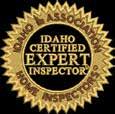
•
•
•
• Terminology training
•
•


•
• 2-6 weeks
•
• Receive cer tificate instantly upon completion
• Cost: $695 (Additional cost if not already cer tified)
best marketing ideas to start your business
• Business creation & filings
• Branding
o Star ting your own business
o Ads, flyers, coupons, mail pieces, & road signs
• Learn the best net working venues & memberships, and which ones to avoid
• Recommendations
o Mail programs
o E&O insurance •
By Rosie Main
As the warm rays of summer shine upon us, many of us find ourselves outdoors more — gardening, walking, playing with our kids, or gathering for church picnics. It’s a beautiful season of life, growth, and connection. But with rising temperatures and increased activity, there’s a greater demand placed on our bodies — especially when it comes to hydration and the vital minerals that support it.
God, in His perfect design, created our bodies to thrive when given the right resources. Just as a plant wilts without water, so do we. And not just any water — but hydration that nourishes the body on a cellular level, infused with the minerals He created in the earth for our vitality and balance.

Why Hydration Alone Isn’t Enough: We’ve all heard that we should drink more water. And it’s true — water is life! Our bodies are made up of about 60% water, and every single cell relies on it for proper function. But here’s something many people don’t realize: Drinking plain water without minerals can actually dehydrate you. That’s right. When you drink a lot of demineralized water (like purified or reverse osmosis water), it can flush out the very electrolytes your body needs to retain that fluid in your cells. Minerals are the keys that unlock hydration at the cellular level.
Without minerals — like magnesium, potassium, sodium, calcium, and trace elements like zinc and selenium — water can’t do its job fully. These essential minerals work together to:
• Support nerve and muscle function
• Balance pH in the blood
• Regulate heart rhythm
• Support detox pathways
• Maintain healthy energy and endurance
So if you’re tired, sluggish, cramping, dealing with headaches, or feeling “off” during the summer months, you might not just be dehydrated — you might be mineral deficient.
Mineral Depletion Is Real — and Common: In our modern world, even the best diets often fall short of providing the minerals our ancestors once enjoyed. Why?
1. Soil Depletion – Today’s crops are grown in over-farmed soil stripped of natural minerals.
2. Processed Foods – These are devoid of nutrients and can further deplete minerals.
3. Water Filtration – Most city water (and even bottled water) is stripped of beneficial minerals.
4. Sweating – When we sweat in the summer, we lose electrolytes. Without replacing them, we risk imbalance.
This is why it’s so important — especially during the hotter months — to intentionally replenish our bodies with both clean, mineral-rich water and supportive whole foods.
Created for Balance: The God-Given Role of Minerals: Minerals are not just nutrients; they are God-given conductors of life. Just as a symphony needs each instrument to play its part, your body needs each mineral in proper balance.
Often called the “miracle mineral,” magnesium is involved in over 300 biochemical processes in the body. It calms the nervous system,
supports restful sleep, helps with muscle recovery, and plays a vital role in blood sugar regulation.
Signs of deficiency: Muscle cramps, anxiety, poor sleep, fatigue, irregular heartbeat. How to add it:
• Epsom salt baths (transdermal magnesium)
• Leafy greens like spinach
• Pumpkin seeds
• Magnesium glycinate or malate supplements
Potassium is crucial for muscle contraction, nerve signaling, and maintaining fluid balance. It also helps regulate heartbeat and blood pressure.
Signs of deficiency: Fatigue, muscle weakness, constipation, heart palpitations.
How to add it:
• Avocados
• Bananas
• Coconut water (look for unsweetened varieties)
• Sweet potatoes
Contrary to what the world says, natural salt (like Celtic sea salt or Himalayan pink salt) is essential — not harmful — when consumed in moderation. It works with potassium to balance fluids and support adrenal health.
Signs of deficiency: Dizziness, lightheadedness, brain fog, especially after sweating.
How to add it:
• Sprinkle high-quality sea salt in your water (1/8 tsp per 8-12 oz)
• Use real salt on your food (not table salt)
• Homemade electrolyte drinks
Calcium is best known for bone health, but it also plays a role in nerve function, blood clotting, and muscle contraction.
How to add it:
• Sardines (with bones)
• Dark leafy greens
• Raw dairy or quality calcium supplements with cofactors like vitamin D and K2
These include zinc, selenium, copper, and chromium, all of which are vital for immune support, thyroid function, blood sugar balance, and more.
How to add them:
• Add a few drops of concentrated trace mineral drops to your water daily
• Eat a wide variety of organic fruits, vegetables, and grass-fed meats
• Supplement with a high-quality fulvic or humic acid mineral complex
Faith-Filled Hydration: Honoring the Temple: 1 Corinthians 6:19 reminds us: “Do you not know that your bodies are temples of the
Holy Spirit, who is in you…?” God cares deeply about our health — not just for our comfort, but so we can fulfill His purpose in our lives.
When we are nourished and hydrated, we can serve better, love more fully, and walk out our callings with energy and joy. Let your hydration this summer be an act of worship — of stewardship of the body He’s entrusted to you.
• Start each morning with a full glass of water + a pinch of salt
• Drink half your body weight in ounces of water daily (e.g. 150 lbs = 75 oz)
• Replenish electrolytes after sweating or exercising

• Use trace mineral drops or natural salt in your water bottle
• Focus on whole foods from the earth — just as God made them
Let this summer be a season not just of sunshine and activity, but of replenishment, rest, and renewal. Just as the Psalmist writes in Psalm 42:1, “As the deer pants for streams of water, so my soul pants for you, my God.” May we seek Him as our living water — and steward the physical water He’s given us with wisdom.
As you drink deeply, may your body, mind, and spirit be refreshed, equipped to walk out the good works He has prepared for you.
To your health and His glory. n
For further support with your health goals or more information, go to MainHealthSolutions.com.
24 oz filtered water
Juice of 1 lemon or lime
1/8 tsp sea salt
1 Tbsp raw honey or a few drops of stevia
Optional: 1 tbsp aloe juice or a pinch of magnesium powder
Shake well and sip throughout your day. Add ice and fresh mint for a refreshing twist!

By Roxanne Drury
When my husband and I travel out of town by car, I usually take on the role of navigator. Although we often rely on GPS, I provide a heads-up before the annoying voice from our phone does. My husband wants to know how many miles until the next turnoff and which direction we will be turning long before we reach it.
A couple of months ago, in a spur-of-the-moment decision, we decided to take a 1,400-mile trip to surprise the family for our granddaughter’s birthday. Now, you must understand that we are NOT spur-of-the-moment people by any stretch of the imagination. We are planners.
On a Thursday late afternoon, I was talking on the phone with our son. He mentioned that they were having a birthday party for our soonto-be 25-year-old granddaughter on Saturday. As I hung up the phone, a wild idea crossed my mind: wouldn’t it be fun to surprise her and show up at her party?
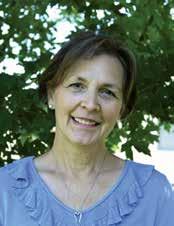
I enthusiastically shared the idea with my husband, who was game for an adventure. He immediately got on the computer and printed directions and a map. I shot a quick text to our son-in-law about our plans so someone knew what we were doing and insisted that he keep it a secret. We scurried around packing our bags, locating items we absolutely needed to bring for our family, and preparing just-in-case winter weather items like blankets, boots, and coats, plus pillows, things to do in the car such as knitting, books to read, and my computer, and plenty of snacks.
Having packed the car ahead of our estimated departure time so we could just hop in and head out, we looked at everything we had packed and burst out laughing. The backseat and the trunk were jam-packed, as if we were heading out for three weeks instead of three days. But we were ready for literally anything!
Heading to bed early, we set our alarms for 4 a.m. Printed directions and map in hand, we were on the road by 5 a.m. Still close to town, the driving was clear sailing. As we ventured further out of town, into the more rural areas, there were no lights except for the blinding headlights of oncoming cars. Road signs became harder to read without light, as they were covered in winter dirt and dewladen. But onward we drove with determination, not knowing that many miles back, we had unintentionally taken a right instead of a left. One hour. Two hours. “Hmmm? This doesn’t look right,” the driver said. “I think we were supposed to turn back there,” the navigator replied.
But on we drove. Eventually, we came across a conveniently located Chevron station. “Let me see that map,” the driver said. “Yep, we are heading in the wrong direction,” he confirmed, “it looks like
we are headed back where we came from.” We continued along the same route until we came upon Route 20. Wait….what???? Pulling over to the side of the road, my husband looked at me and said, “Well, we have been driving for over two and a half hours. It looks like we looped back on a different route because we are now 20 minutes from home. What do you want to do?” “Let’s go home!” the navigator responded. So, we did.
There are so many lessons in this story. Lesson one: we should have used our GPS. We should have trusted the expert in directions: Google’s annoying voice. Lesson two: we justified our fiasco by thinking that maybe God was protecting us from something bad that might happen while we were on the road. In His mercy, He acted on what He knew lay ahead. That could be true. He’s like that! But more importantly, lesson three: I hadn’t stopped to pray about the trip beforehand. I hadn’t asked the real Navigator if we should go or not and to give us directions. I hadn’t asked the real Navigator to show us the way. Even when we realized we were lost and heading in the wrong direction, I did not turn to the real Navigator. It wasn’t until my husband asked me, “What do you want to do?” that it struck me. I needed to go home; my plan was not God’s plan.
Proverbs 16:9: “In his heart a man plans his course, but the Lord determines his steps.”
Proverbs 19:21: “Many are the plans in a man’s heart, but it is the Lord’s purpose that prevails.”
God’s plans and purposes for us are always the best. He is a true expert in directions. It is in our best interest to consult the true Navigator. Even when we forget, His plans will prevail. There is freedom in knowing that we can trust Jesus to guide and direct us in every situation. When we rely on Jesus instead of our own judgment, we can be worry-free and won’t get lost on dark roads or take wrong turns.
In John 14:6a, Jesus said, “I am the way.” He is the exclusive road we can follow. We can trust Jesus to lead us, provide direction, and give us a thumbs-up or thumbs-down for everything we do or plan to do. I am so grateful that Jesus possesses infinite patience and wisdom as we travel this road called life. n
Roxanne Drury is a wife, mother, grandmother, and retired Christian preschool teacher who served the Lord in children’s ministry for over 45 years. She has written a group study guide on Psalm 23, as well as other books. She may be reached at glorylandbooks@gmail.com.
















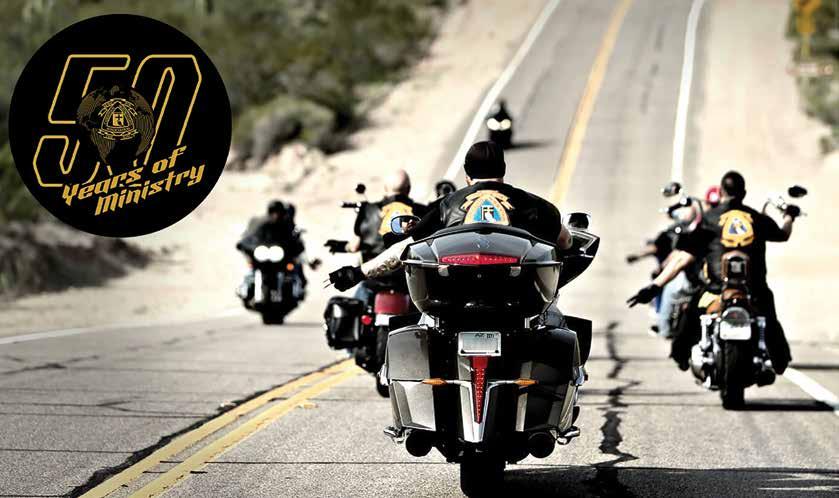
“There are many riders that won’t darken the door of a church but will go to a motorcycle rally. And if CMA is there to serve, I might get the opportunity to share or plant a seed that will lead that person to Christ.”
- Jim Caulk
By Gaye Bunderson
A local group called Christian Motorcyclists Association loves its wheels, and loves to use motorcycles as a means of fellowship. They’re a bunch of believers who know how to have a good time — all while acknowledging and serving the Lord.
A number of CMA chapters exist in Idaho, and the names of each chapter reflect the faith of each. For instance, the Boise chapter is named R-Wheels-R-His, and the Nampa chapter calls itself the Narrow Road Riders after Matthew 7:14: “For the gate is narrow and the way is hard that leads to life, and those who find it are few.”
The association launched in the U.S. in the ‘70s and was founded by a man named Herb Shreve, who felt that God was calling him to be a preacher, according to Bev Amos, who serves as Road Captain (ride planner) for CMA in Boise. About Shreve, she said, “He and his son had drifted apart, so to help fix that, they decided to travel together.”
That meant getting some motorcycles, Amos explained. But the pair found that motorcycles had a negative connotation in the church; and when they went to motorcycle rallies, there was no mention of God.
Shreve wanted to fix that situation, and that’s what he did. He started the association, and in 1975 it was ‘legally formed,’ with paperwork and legal filings.
He and his son lived in Arkansas and likely never perceived how their original motorcycle bonding experience would grow. Over the years it became huge in the U.S. and eventually jumped oceans to become an international phenomenon. CMA is now in 36 countries, with 1,500 chapters and 180,000 members in the U.S. alone, according to Amos. And this year marks the 50th anniversary of the association dedicated to people who ride motorcycles. But not for the thrill of speed or daring but for Jesus, in His service and with ministry to others.
“We consider ourselves a servant organization,” Amos said.
An example of their service includes their visibility — with their cycles — all along Harrison Boulevard in September. “We meet with the people. They come out and greet us, kids and parents alike,” Amos said, continuing that, “in early May, we held a Run for the Son weekend; it’s to help raise money for the Jesus Film Project, which makes the film in various languages for people throughout the world — even for some of the poorest countries, where organizers may backpack in and use a generator to power electricity for showing the film. And even if it’s only on a hung-up sheet rather than a screen. They show the film in the people’s native tongue.”
She explained that in some of the places the motorcycle missionaries go to, the indigenous populations there may peek behind the sheet or screen expecting to see the people in the film back there.
Other funds from CMA go toward purchasing transportation means for pastors in Third World countries, such as motorcycles, bikes, boats, and even horses.
One of the members who personally experienced traveling for Christian Motorcyclists Association is Tom Hammond, Idaho State CMA Coordinator who went on a mission trip this past May. “The mission trip allowed me to participate in the distribution of transportation vehicles to pastors in Guatemala, enabling them to grow their churches, reach further into outlying areas, and also for basic emergency transport for their church families. 150cc motorcycles may not seem like much here in the U.S., but to them it is life-changing.
“Look up Run for the Son on the CMA website (cmausa.org) and watch our videos. I get to pray with the pastors and families, share their stories and sit at the dinner table with them to better understand the challenges they face. Often we service older motorcycles and conduct minor repairs when possible. The first-hand view we get on these trips helps us to communicate to our friends, neighbors and other members why it is important to support them in prayer and through finances.”
Hammond explained how funds are raised for the mission outreach. “Each year on the first Saturday in May is our ‘Run for the Son’ event. Our only CMA fund-raising effort culminates on this day to enable financial support; 60% of the funds raised are distributed to our partners to enable continued support of their missions. CMA partners with them in reviewing and approving their use of the funds we provide. Last year, each partner received over $1.25 M from our fundraising efforts.”
Along with the Jesus Film Project, CMA partners with Missionary Ventures International and Global Christian Relief.
The CMA chapter in Fruitland offers a prison ministry. “Our national motto is, ‘Changing the World One Heart at a Time’,” Amos said.

Hammond said, “We are interdenominational and are from diverse backgrounds. We strongly encourage our membership to be grounded in a home church. There are no dues or membership fees to be a member. We don’t even require anyone to own or ride a motorcycle or ATV. We do require agreement with our doctrinal statements, which include:
• The Bible as the inspired and infallible Word of God
• One God, eternally existent in three persons: Father, Son, and Holy Spirit
• The virgin birth and deity of Christ, His explicit atoning death, bodily resurrection, and ascension
• Salvation through the blood of Jesus Christ
• The sanctifying power of the Holy Spirit, who enables a believer to live holy
Eagle Peak Lodge/RV Park 164 White Pine Rd., Ashton, ID 83420

There are activities to enjoy with CMA membership. “We go out on rides,” Amos said. In May, they hold a Dinner Ride, then a Day Ride on the second Tuesday of each month. They go to a motorcycle shop in Meridian called Cycle Gear and greet people. They give “bike blessings,” which entails going up to a man and his cycle and asking if they can pray for his safety, and also pray for the cycle. It’s all voluntary for Cycle Gear’s customers, but the response is positive.
Have members of the group experienced motorcycle accidents? Amos said yes, though not many. CMA stresses safety at all times.
People of all ages are members in the Idaho chapters of Christian Motorcyclists Association. Many members are retired and are ages 50 and above; however, any person of any age is welcome. There are singles, couples, and families with Mom, Dad and the kids behind them. There are also older people who used to ride motorcycles but no longer can due to age limitations, yet who come to group events anyway and are always welcomed.
• The second coming of Jesus Christ Hammond continued: “As a servant ministry, we earn the right to speak. Building relationships with motorcyclists and their families, we are then able to share the good news of salvation through Jesus Christ.”
Jim Caulk, president of Narrow Road Riders in Nampa, said about his membership in CMA: “CMA means a lot to me because I can use my passion (motorcycling) as a ministry tool among motorcyclists to share my faith. There are many riders that won’t darken the door of a church but will go to a motorcycle rally. And if CMA is there to serve, I might get the opportunity to share or plant a seed that will lead that person to Christ.”
Idaho CMA chapters will hold their annual Idaho State Rally July 27 in Ashton, Idaho, eating, hearing messages of faith, going on rides, and camping out together or staying in hotels. Hammond said the annual rally is always open to anyone and everyone, and non-members may attend for free.
Praise and worship, a scavenger hunt, and ice cream are all on the agenda. Saturday at dusk the children’s version of the Jesus Film will be shown in the Ashton city park, following hot dogs and drinks for all who attend.
The kinds of cycles that are welcomed in CMA are not limited and include Harleys, Honda Gold Wings, and other makes and models. Amos herself rides an adult tri-wheel cycle; other configurations of cycles are welcome as well.
“It covers the gamut,” Amos said.
CMA is not the only biker group, and is not even the only Christian biking group in the area or across the country. “CMA is not all by itself,” Amos said. There is Bikers for Christ, for instance, and she said there are 28 groups nationwide, as well as various other local groups, proving that cycling and Christianity can be a match made in heaven — not so negative now, Herb Shreve. n
To join, go to cmausa.org and find a nearby chapter. Many local chapters may also be found on Facebook and, as stated, there’s no fee to join.
By Dr. Rick Chromey
“...the hand of providence has been most wonderfully in our favor...” (Meriwether Lewis, July 15, 1806)
America had one burning question for the expedition members upon their return: How did you do it?
At an 1807 gathering in Fincastle, Virginia, Clark answered that query with seven words. His reply satisfied the crowd and brought the discussion to a close.
Clark explained their success wasn’t luck, fate, or even their own “wisdom.” Instead, Clark pinned their success to the “singular interposition of Providence.”1
God uniquely intervened to rescue, heal, provide, and protect.

Lewis echoed a similar reason following yet another near-death escape from a grizzly.2
Many readers think it miraculous that Lewis and Clark completed this mission with but one death.
And yet several moments in this story are miraculous. MerriamWebster defines a “miracle” as an extraordinary event that shows Divine Intervention beyond natural laws and lacks a reasonable explanation. Miracles are supernatural and unexplainable. And there are three events described in Lewis and Clark’s journals that fit this rule.
Meriwether Lewis was involved in all three.
The first “miracle” happened near Pittsburgh on August 31, 1803. It’s the first entry in the journals...and it’s a head-scratcher. Lewis stopped at an island to visit a friend. But his friend was more interested in his new high-tech gun, a .46 caliber Girandoni repeating air rifle.3 Lewis hadn’t fired it yet, and it was time to break it in. Lewis nailed his target fifty-five yards away seven times.
However, when his friend shot the rifle, it got the upper hand and “accidentally” struck a woman forty yards away in her head. She “fell instantly, blood gushing from her temple.” Everyone, including Lewis, rushed to her. But it was too late. “She was dead,” wrote Lewis.
Except she wasn’t.
Mysteriously, after several minutes, the woman awoke and had an unexpected recovery. Lewis examined her head wound and determined the formerly “gushing” bloody wound wasn’t “dangerous.”4 She walked away. Lewis wasted no time either. He boarded his barge and headed downriver.
Leaving dozens of questions for inquiring minds, including:
• How can a lifeless, presumed-dead person revive without treatment (Lewis was a field doctor)?
• How does a military-grade rifle create a deadly, gushing wound that heals on its own?
It’s irrational and unexplainable...with biblical overtones... a miracle?
On June 10, 1805, near Great Falls, Mont., the teenage Shoshone interpreter for Lewis and Clark was dying. Her health had been deteriorating for five days. Clark had bled her twice, drawing over a pint of blood, further weakening her. Then, Sacagawea stopped eating on June 16.
Clark was out of ideas.
But Lewis was arriving with the cure: sulfur water from a spring across from Clark’s camp. It was Lewis’s only idea for the diminutive teen mother with barely a pulse, high fever, and nervous twitching. Sacagawea drank heartily of Lewis’ medication and soon found herself getting better...fast!
Sulfur water appeared to be key to Sacagawea’s mystery illness.
Many historians believe she suffered from advanced venereal disease, which she picked up from the French. However, a new theory has gained ground recently: a mistreated urinary tract infection. The argument contends Clark’s “bleedings” further weakened and dehydrated Sacagawea’s small frame. In contrast, Lewis’s mineral water treatments hydrated and healed her quickly...within hours.5 The next day, Sacagawea ate “heartily,” convincing Lewis he had “every rational hope of her recovery.”6
The miracle in the odds:
• How fortunate was Clark’s party to camp opposite a sulfur spring, precisely when Sacagawea needed its remedy?
• And that sulfur spring was the Missouri River’s only pool and one of only two high-sulfur spring pools in Montana?
• How did Lewis know to use it as medication?
Which is more plausible? A random series of events and places colliding accidentally to produce healing? Or did God bring Clark’s party to the right place and provide Lewis the right solution to medicate Sacagawea?
A final incident was in the nearby plains only a few days earlier (June 14).
In the late afternoon, Lewis shot a bull bison, but he wasn’t alone. A large grizzly also caught wind of the kill and was targeting Lewis. By the time Lewis saw the bear sneaking towards him, his uncharged weapon was a problem.
Lewis had only one option: run!
The nearest tree was hundreds of yards away. The Sun River was 80. Lewis flinched. The grizzly charged, and the chase began!
But this is where the miracle lies.
The fastest human is lucky to run 24 or 26 mph. Grizzlies top out at 35. And yet Lewis somehow galloped 80 yards, breaking world record speeds, fully geared. Once at the river, he decided to fight the bear. But what happened next confounded the captain. He wrote later, “It still remains with me mysterious and unaccountable.” 7
The grizzly, which had charged fiercely to the river’s edge, suddenly stopped, turned, and sprinted away. When Lewis saw him, the bear was still running miles away. What could scare a grizzly just twenty yards from attack, making it flee at full speed?
Certainly, something spooked that grizzly, sending it scampering back into the woods. Lewis was stumped.
Mysterious. Unaccountable. A miracle from the “Hand of Providence”? Maybe Lewis has seen the light.
Following the Expedition, many others ventured into the American West. However, these mountain men, fur trappers, and emigrant wagon trains encountered a more challenging path. Maybe that’s why Clark claimed the Corps of Discovery succeeded by the “singular interposition of Providence” — an interesting phrase found in the works and speeches of many Founders, including John Jay, Benjamin Franklin, and George Washington. It means God intervened to protect and provide for us alone. Lewis and Clark believed God’s Hand was upon their venture. To them, and many others, it remains the only rational explanation for how they did it. It’s a matter of faith. Believe it...or not. n
Dr. Rick Chromey is a historian and theologian who speaks and writes on matters of religion, culture, and history. He’s also a Lewis and Clark historian for American Cruise Lines (Columbia and Snake rivers). Rick and his wife Linda live in Star, Idaho. www.rickchromey.com
Sources:
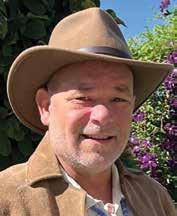
1. “Clark to the Citizens of Fincastle,” January 8,1807, Letters of the Lewis & Clark Expedition with Related Documents, 1783–1806, ed. Donald Jackson (Urbana, IL: University of Illinois Press, 1978), 359–60.
2. Meriwether Lewis., July 15, 1806 entry in The Journals of the Lewis and Clark Expedition, ed. Gary Moulton (Lincoln, NE: University of Nebraska Press / University of Nebraska-Lincoln Libraries-Electronic Text Center, 2005), https://lewisandclarkjournals.unl.edu/item/lc.jrn.180607-15#lc.jrn.1806-07-15.02
3. The Girandoni air rifle was likely a .46 caliber, however, a .51 caliber gun was also produced. “History of Girandoni Air Rifle” by Airgun Depot, June 4, 2021: https://www.airgundepot.com/vault/articles/girandoni-air-rifle/
4. Lewis, August 30, 1803, https://lewisandclarkjournals.unl.edu/item/lc.jrn.1803-08-30#ln01083006
5Dr. James Alexander wrote “oral hydration...as well as the potential bacteriostatic agent in the sulfur water, can clear the infection very rapidly...especially in the case of a young, otherwise healthy person.” Private email exchange with Elizabeth Alexander and Rick Chromey, March 13, 2025. 6. Lewis, June 17, 1806, https://lewisandclarkjournals.unl.edu/item/lc.jrn.1805-06-17
7. Lewis, June 14, 1805, https://lewisandclarkjournals.unl.edu/item/lc.jrn.1805-06-14#lc.jrn.1805-06-14.01

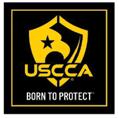






(Submitted by Cory Freese, Idaho State Coordinator, National Network for Youth Ministries)
In the parable of the Good Samaritan, Jesus describes a traveler beaten and left by the side of a road — a road known for its dangers. The powerful twist in that story isn’t just about the man who stopped to help; it’s about the fact that someone saw the need and chose to act.
Today’s students are on a similar road. They’re navigating bullying, anxiety, social pressures, and deep questions about identity and worth. Some face physical danger; others endure emotional wounds that are just as damaging. In 67,000 public schools and nearly 1,300 juvenile detention centers across America, our young people are crying out for guidance, compassion, and hope.
What if the Church became the Good Samaritan in this story? 81% of the teen population spends three-fourths of every year on a campus.
Footprints on Campus is part of the Symphony of Prayer, a nationwide initiative running through August and September to surround schools and students with prayer. Just as a symphony combines unique instruments into one breathtaking composition, this movement brings together churches, ministries, parents, students, and prayer warriors from every background in unified, powerful intercession.
85% of people who follow Christ do so before the age of 15. In 2024 alone, nearly 2,000 schools were covered in prayer during Foot-
prints week — and more than 1,000 were adopted for yearlong prayer. It’s working. Students are being reached. Culture is shifting. Hearts are softening. But we need more voices. More prayers. More footprints.
This isn’t about launching a massive program or adding more to your plate. It’s about a simple act of faith: showing up and praying. Here’s how to get started:
GO: Go to a local school and claim that ground in faith. Show up in person and cover a school or detention facility in prayer during August 11–15. This invitation is open to all leaders, ministers, parents, and community members who want to see teens’ lives radically changed by Jesus. We know it’s ambitious — but we believe we can do it together. Not sure where to start? Email footprints@nnym.org to get in touch with a prayer coordinator in your area.
GROW: Grow our prayer coverage by adopting a school for yearround intercession. We want to see every school prayed for and every student within an arm’s reach of the gospel. We’re partnering with Every Student Every School to mobilize prayer warriors who will cover schools across the country throughout the year. Adopt a school for prayer.
GIVE: Give to support the student ministries on that campus. Help launch this school year with prayer and purpose by investing in youth leaders committed to reaching students. You can give toward our national fund — or directly support a team member’s ministry by selecting their name in the dropdown menu at nnym.org/footprints.
Since 1979, National Network of Youth Ministries (NNYM) has existed to shape the faith of the next generation. We unite and empower more than 37,000 youth leaders across the U.S., fostering collaboration, discipleship, and longevity in youth ministry.
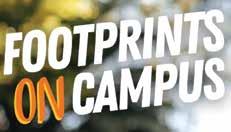
In partnership with grassroots prayer movements like See You at the Pole, Prayer Walk Projects, and now Symphony of Prayer, NNYM supports youth leaders reaching tens of thousands of schools with the good news of Jesus. And in collaboration with ministries like Moms in Prayer and Campus Alliance, we are mobilizing believers to cover every school in prayer — laying the foundation for gospel-centered relationships and transformation.
Joshua 1:3 says, “I will give you every place where you set your foot.” What if the next revival begins not in a stadium, but on a sidewalk in front of a public school? What if your prayers today lead to a student’s salvation tomorrow?
We are inviting you to claim the ground for Christ — one campus at a time. Pick a school. Google one nearby. Start praying. Mark your calendar and join us August 11–15 for Footprints week. Invite a friend or small group. Prayer is stronger in unity. Download prayer resources from NNYM to guide your journey. n
Have questions? We’ve got answers. Email us at footprints@nnym.org or go to www.nnym.org/footprints.










By Gaye Bunderson
Q. When did you first become involved in Kairos Prison Ministry and what motivated you?
A. I started about 10 years ago. At that time I was working, but God was speaking to my heart to become involved in some kind of ministry. My wife was a support volunteer for Kairos Inside (KI). She also was part of the Kairos Outside (KO) program. So I first volunteered as a support volunteer for KO. When I saw the transformation of some of those involved in that program, I signed up to go into prison with KI for men. Just for reference Kairos Prison Ministry is one ministry, three programs. Kairos Inside is a prison ministry with a mission to develop a Christian community on the inside for men and women incarcerated in prison. Kairos Outside is a ministry for women who have been impacted by prison by either their spouses, parents, or relatives. Kairos Torch is a mentoring program for incarcerated youth, ages 25 and under. Idaho currently has one KI for men and members are praying to get a KO started again, as well as a Torch ministry up and running.
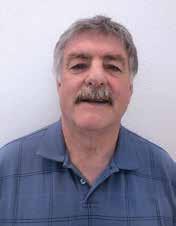

Q. What does the word Kairos mean in this context?
A. The Greek language delineated two types of time: Chronos and Kairos. Chronos refers to sequential, quantitative time (seconds, minutes, hours, years). Kairos does not care about how many ticks of the clock have passed. Instead, Kairos is the perfect moment or the best time to do something amazing. It is not about how long you wait but catching the right moment when it comes. So I would say it is the timing of when God calls and one answers. The Kairos programs start with a 3½ Day Weekend which is “God’s perfect time,” or Kairos time for that participant. It is then followed up by weekly prayer and share groups, monthly gatherings, and quarterly one-day retreats.
Q. Could you tell me what happens when you walk into a prison to visit inmates?
A. I cannot speak for everyone, but 10 years ago I could not just walk in and start talking to a resident about Christ by myself. The first time I walked into prison it was a little intimidating, and to be honest I was a bit nervous. The one thing that helps when going in with Kairos is that it is with a team of men that is led by Jesus. Spreading the good news the first time one goes in is easier with fellow Christians, with Christ leading us. After 10 years it is not intimidating and I do not feel nervous. I am now very comfortable and would feel comfortable going by myself, but I fully enjoy going in with my fellow Kairos brothers and sisters.
Q. Could you tell me one of the more inspiring stories about an inmate who was saved?
A. There’s so many. One that really stands out to me was during the second year I was in KI. We let any resident come into Kairos and it starts with the 3½ Day Weekend. The 3½ Day Weekend is held every year for up to 42 residents. It is where we tell them about Christ and do a short course in the Christian way to live. At the end of this program, residents have a time where they can stand up and tell the audience what the weekend has meant or done for them.
One of the residents who attended that year confessed, “When I came in on Thursday, I was the leader of the devil worshipers at this facility and after these three days I am giving my life to Christ.”
Since then, he has been an active participant in the Kairos weekly
prayer and share, monthly reunions, quarterly gatherings, and bringing other residents to Christ. Not every resident who goes through Kairos changes, but many do, and others at least have heard the Word and hopefully will come to know Christ.
Q. How would you encourage others — inside or outside the church — to get involved in helping those in prison? And what is the best and safest way for people to do that?
A. I cannot speak for other ministries and/or programs involved with prisons, but for Kairos there are several ways to become involved either inside the prison or out with the ministry. A person can be a team member going into the prison involved in KI, and/or Torch, and/or be a team member of KO. A person can also be involved in all three as a prayer partner, support volunteer, financial supporter, or board member. Anyone can be involved in Kairos without going into the prison. In other words prayer, time, and financial support are important.
As I hear from a lot of ministries and programs, “The harvest is plentiful but the laborers are few” (Matthew 9:37-38). The best and safest way for Christians to get involved would be start with prayer. Pray for what God is calling you to do for Kairos. Then whether Christian or outside the church, Idaho Department of Corrections has a protocol and training a person has to go through to be able to enter the prison. The Idaho Kairos team would love to have you join our team to spread the good news.
Q. What are some other specific guiding verses for the ministry?
A. I would say there are several that pertain. The main one is Matthew 25:36. The other that God put on my heart was one Jesus asked his disciples to do: “Go into all the world and proclaim the gospel to the whole of creation” (Mark 16:15).
Q. In what ways are people in prison both like us and different from us?
A. They’re like us in that they’re human and have faults. Once they become Christians they also struggle with faith and hope, but it’s harder in prison. We are all exposed to negativity, but from what I have seen in talking with residents it feels like one can’t (just) get out and get away from that negativity. Also, many people in prison come from very difficult backgrounds. Just like us, though, we all have to look towards Christ and let Him lead us to His way of life for us no matter the circumstances.
Q. What is particularly unique about Kairos?
A. We are in 39 states and 15 countries. We work with both men, women, and with juveniles when there are available and willing volunteers. We are ecumenical. We come from various denominations, but we put those denominational differences aside and focus on Jesus. We’re just showing Jesus Christ.
Our motto is simple: LISTEN, LISTEN, LOVE, LOVE. We work to exhibit the total agape love of Jesus, while at the same time speaking truth. I would say for me Kairos emphasizes it’s not about religion; it’s about relationship. We’re following Christ’s lead. You find further information on the Kairos website at kairosprisonministry.org. n
Kent Smith is Idaho Kairos State Chair. He may be reached at krs052558@gmail.com.

By Steve Bertel
Brandon was going through some tough personal struggles.
On one front, three close members of his family had all passed away in a short period of time. On another front, his parents were divorcing; his mother, struggling with his father’s battle with alcoholism.
He had found at least a modicum of solace, sitting on the shoulder of a remote dirt road, deep in the Idaho wilderness, where he and other teens from a nearby church camp had been hiking. Their youth leader had sent the others on ahead, while he stayed behind with Brandon, sitting with him, comforting him, consoling him; the man reassuring the boy that, despite the challenges he was facing, God is still in control. And that God still loves him. Very much.
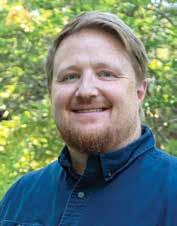
However, little did Brandon realize back then that, years later, those roles would be reversed. And he would become the comforter to youth.
Brandon Swain grew up in the little wilderness town of Challis, Idaho.
He was raised in the community’s Catholic church — serving as an altar boy; in fact, his grandmother even regularly played the organ in the church. But he fell away from his faith when he was about eight years old, after his parents’ marriage ended. “At that point in my life, even though I always enjoyed being a part of the church, I didn’t understand that much about God,” he admitted. “I was not reading the Bible, so I really didn’t know how to follow Him. And then, after a while, I simply didn’t go to church anymore. But I still believed in God.”
He met McKinsey years later while he was attending school in Boise and, in 2001, the couple got married. “We went through [the required] pre-marital counseling so we could be married by a pastor, because we wanted our marriage to be before God, not the state,” he said. “But, as for my faith, I was only going off what I had learned back in Sunday School.”
The couple later moved to Seattle. “At first, we were on our own. It was just the two of us. We’d hang out with friends, but it was more of

a party culture,” Brandon recalled. But then, when the couple relocated to Portland, Oregon — because McKinsey landed her first job out of school there — their lives changed. For the better. They connected with another group of twentysomethings who were more directly plugged in to God’s Word. “And that’s when my wife and I found something we hadn’t really experienced before. We joined a Life Group, we started studying the Bible regularly … it was like a real church community!” he explained.
Through the new group, “We learned how each of us could become a better person, and how we could better deal with our struggles. It was an amazing time! We even learned how to reach out to communities in need. For example, we went on a mission together to help those whose homes were destroyed by Hurricane Katrina. That was a real faith builder for both of us.”
As he and McKinsey built their family (they now have three adopted children), Brandon decided to pour himself into youth ministry. He felt that’s where God was calling him. Or, as he pointed out, “Even before I was a Christian, I really enjoyed being around young people, teenagers. I’ve always had a youthful spirit about me. I’ve always loved hanging out with kids, playing games, doing goofy stuff with them. I felt, if that’s the direction God wanted me to go, He would open doors.”
And He did.
When Brandon first got called into ministry, “I became involved in the worship music and youth ministry of a very small restart church in Santa Rosa, Calif.,” a city about sixty miles north of San Francisco, near the California wine country. “However, the church was so small, the only on-staff person was the pastor. So, some of the other parents — whose teenagers were in my youth group — and I got together and decided to do a ‘co-op,’ where we would rotate giving the Message to the kids, involving them in a Bible study, or simply playing games with them. I really enjoyed it. We all did. Our own kids were even involved in the program.”
After serving in the Santa Rosa church for some eight years, God opened another door for them. “My family and I were very involved in our church. The members were like family to us,” said Brandon.
the rest!
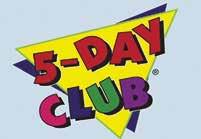

But, when his in-laws left California and moved back East, “We didn’t have any biological family in the Santa Rosa area anymore. My wife and I wanted our kids to really get to know their grandparents better, who live in Idaho. So we took it to God. If He wanted us to stay in California, we knew He would make a way for us. Or, if He wanted us to return to Idaho, we knew He’d make a way for us there. So we knew God was giving us His blessing, when He made it so we could return to Idaho.”
Settling in Kuna in 2018, Brandon continued his ministry work — this time, as youth pastor assistant at Stonehill Church, a nondenominational church in south Meridian. There, he had his first exposure to the group known as the National Network of Youth Ministries (NNYM) which, since 1981, has been working throughout the country to bring churches, pastors, and especially youth ministers and youth leaders together in neighboring geographic areas to network, share ideas, share resources, to learn from each other and, most importantly, to pray for each other.




“I immediately knew it was a good thing,” Brandon recalled. A good thing he wanted to be a part of. “I’m very much a networker. I love connecting people. I love sitting down and strategizing with other leaders. So I began praying about it, asking God what He had next for me.”
Brandon started his own network in 2020, when he became youth pastor at the E3 Church in Kuna. He served there for four years “with much success,” as he pointed out. But, when he decided it was time to move forward from that pastoral position, he felt led to help other youth pastors — and joined NNYM as an Idaho Area Coordinator. “It was definitely a calling from the Lord for me to take it on. I knew I was ready to pass my position [at E3 Church] to a new youth pastor. Not that I can’t relate to kids anymore. They’re super energetic … and I just don’t have the energy I used to,” he chuckled, “since I’m getting a little older now.”
And, just as in Matthew 9:37, where Jesus said to his disciples, “The harvest is plentiful but the workers are few,” “There is plenty [for NNYM] to do here in Idaho,” Brandon said, with an estimated 1,100 youth pastors in the state, 1,174 churches, and 522 middle and high schools.
But, keeping with NNYM’s mission to create “collaborative spaces for youth leaders to be personally encouraged, professionally equipped, and spiritually strengthened for faithful and effective ministry with the next generation” can be a bit of a challenge at times.
Many of Idaho’s small-town or outlying-area churches have minimal staffs, so taking on another ministry effort — even if it means helpfully networking with other churches in their areas — can sometimes be intimidating. “Some pastors think, ‘Well, this is just another time commitment for me’,” Brandon admitted. “So I work to help pastors and youth leaders see the vision behind NNYM, and how it can significantly benefit and bless their churches — and their youth. And why it’s so important for churches and youth ministries to work together to share resources with each other, to exchange ideas like ‘How did you handle such-and-such an issue?’ And, really, to have the mindset that it’s okay to share that you’re struggling with something as a church, it’s okay to ask for help; because, especially in churches with small staffs, both pastors and youth leaders oftentimes feel like they are carrying the entire weight of the church.”
Social media has an obvious significant impact on kids today. And not in good ways. It can create anxiety, depression, suicidal thoughts, even pornography addiction. So, as his statewide church network expands, Brandon is looking to set up more roundtable discussions, pastoral-specific training, virtual (video) conferences, and even more large-scale worship events where a number of youth groups can come together at a host church; all in the universal effort to not only help churches collaborate, but to encourage and support youth leaders and, in turn, to strengthen kids’ resistance to the social temptations and pitfalls prevalent today. And it’s working. Or, as Brandon pointed out, “At a recent local youth worship night event, we had some 100 kids show up, and about twenty came forward to give their hearts to the Lord. When you see that, it makes it all worth it.” n
If you’d like to partner with Brandon and help support his work with the NNYM (93% of every dollar donated goes directly into the communities where the team member serves), or to join his prayer team, you can reach out to him at bswain@nnym.org.
Steve Bertel is a multi-award-winning professional radio, television, print media, and social media journalist, who retired after a 30-year broadcasting career. Now a busy freelance writer, his debut suspense novel, “Dolphins of an Unjust Sea,” is available on both Amazon and Kindle. He and his wife of 42 years live in Meridian, Idaho. He can be reached at stevebertel65@gmail.com.



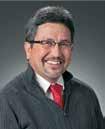


By Bethany Riehl
The more they dug, the more my heart began to pound, and my thoughts ran circles while I lay there limp and helpless.
Were the owners of this house, Simon and Andrew, home? I heard that they had stopped fishing — abruptly left their nets, even — to follow Jesus of Nazareth. Simon was a well-known hothead; what would he do when he saw what they had done to his roof?
Then a different kind of excitement rushed through my veins — if the reports were true, I would soon be healed. Then I could help to repatch the roof.
I imagined it, standing on my own two feet, climbing, carrying supplies up the stone steps I’d just been carried up; straightening to stretch my sore back muscles and pausing to wipe my brow with the back of my arm to clear the sweat from my eyes.
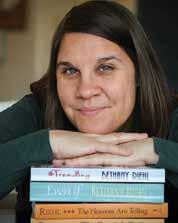
The sweat of hard work and effort. Of a man that would no longer be called lame. Worthless. Hopeless.
Then suddenly, I realized the sound around me had shifted. I couldn’t hear the shink of their shovels sinking into hard clay or the thump of dirt being piled at my feet. Instead of the steady drone of Jesus’ teaching in the room below, I heard a rush of gasping and shouts of surprise as dirt rained down below.
Jesus was no longer talking.
My friends gathered the ropes that they had brought into their hands, wrapping it around their strong arms, leaving a tail behind them, then arranged themselves, two at my head, two at my feet, and lifted me up and over the crude hole. My heart hammered to a stop before it began to race.
And then I was lowered — slowly — down into the house. Faces appeared, one, then another, then five more. Simon indeed looked annoyed, Andrew confused. I looked around for Jesus, realizing I’d heard everything about Him except what He looked like. It took a moment to pick Him out among the crowd, but as I reached everyone’s knees, my friends must have slipped a little and I landed on the floor with a thud; wincing from my inability to do more than put my hands out for stability, I saw one expression of compassion among the mixtures of annoyance, pity, and confusion.
I was surprised at how average He appeared. I could have passed Him every day in the street and not looked twice. There was authority in His stance and eyes, yes, but not arrogance. Care but not worry. Peace paired with action. I desired to fix my eyes on His but also felt too ashamed to look upon His face.
The ends of the ropes dropped, landing with a thud on either side of me.
He laughed a little, and, shaking the dirt from his hair with one hand, looked up at my friends, all kneeling now, watching expectantly, smiles on their faces.
I swallowed. How could they look so confident? They must not be as big of sinners as I was. I couldn’t look at Him. If He knew how I’d sinned, would He —
“Son, your sins are forgiven.”
I blinked. Looked up into His face, into the firm assurance in His eyes. My sins were forgiven? To my shame, even now, I felt the heavy weight of disappointment settle on my chest. So not even this miracle worker could make me walk again. The soaring height of my hope crashed down around me, landing with a dull thud, just as the ropes had.
But then I thought of those long nights thinking, those reports that had come back. He’d made the leper clean. Who but God could do something like that? If He declared my sins were forgiven then, maybe —
Before I could finish my thought, Jesus turned suddenly to look at the group of men I recognized as scribes. They were sitting together, brows drawn, faces set in hard lines.
He said to them, “Why are you questioning these things in your hearts?”
The men glanced at one another, and although they shrugged as if they didn’t know what He was talking about, their eyes betrayed them.
“Which is easier to say to the paralytic?” Jesus continued, “‘Your sins are forgiven,’ or to say, ‘Rise, take up your bed and walk’?”
A small stream of dust showered down from above and I glanced up. My friends had shifted, leaned close, eyes expectant. My heart began to pound and I licked my lips.
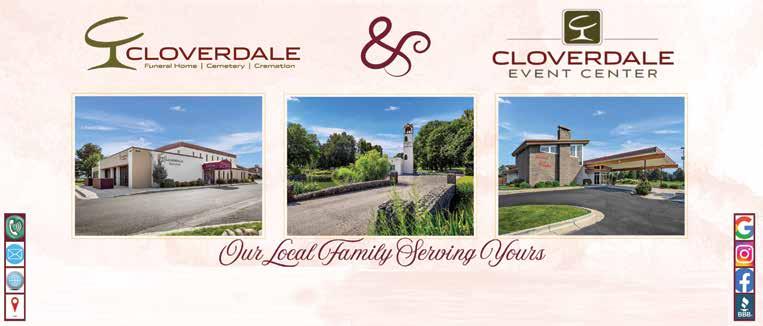
“But that you may know that the Son of Man has authority on earth to forgive sins,” again Jesus fixed His eyes on mine, “I say to you, rise, pick up your bed and go home.”
Over the years I’ve been asked about that moment more than anything else: Did I feel something like lightening course through my body? Did I test one foot, then another? Was I afraid to try and stand? Did I doubt?
I never know quite how to answer. Because all I did was stand. I don’t know how; I just obeyed. And when I stood up, it was with the fluidity and confidence of a man that had never been lame. My feeble legs were immediately strong, corded with muscle, just like the men who had carried me to the roof. My core moved with ease as I bent to retrieve my bed, as if I hadn’t spent my life unable to use it.
But while gasps of astonishment and amazement filled the room, as I straightened, lifting my now rolled bed to my shoulder, all I could think of were His words:
“…that you may know that the Son of Man has authority on earth to forgive sins…”
From that day forward, I’ve walked with the peace of one who has been made well, not only in flesh, but in spirit. Those around me then had cried out and glorified God, shouting, “We never saw anything like this!”
Jesus came back to Simon and Andrew’s house often in the three years of His ministry and I always went to listen. I stood in the back, never tired of the amazement I felt in being able to lean against a wall and look over the heads of those around me. Not until after Jesus was resurrected did I completely understand how He had forgiven my sins.
The weight of that truth still stops my breath.
He traded His perfect life for mine. He didn’t make my sins disappear; He took the wrath that I deserved. He died the death that I deserved to die.
And because He rose from the grave, I know that someday I’ll walk with Him in paradise when He calls me home at last. n
Bethany Riehl lives in the Treasure Valley with her husband, three kids, and a dog. She writes articles and fictional novels when she can, and her one desire is to point others to the love and sufficiency of Jesus Christ.


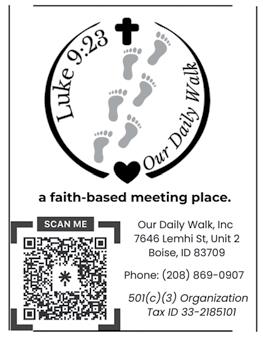
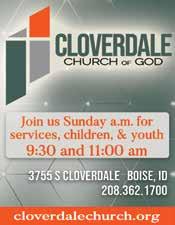

Held On October 3-4, 2025
In Boise, Idaho
This conference is a time where regional chaplains can gather to connect and be encouraged. This conference will include teaching topics, workshops, and guest speakers from regional and national Chaplaincy organizations.






By Larry Banta
As an ordained minister (another claim to my renegade status), so far I have had the privilege of doing only two funerals. One was my good friend, Rick, the other my father-in-law. Rick was from western Oregon. He was divorced but had since rededicated his life to serving God.
He was a very accomplished pilot and pilottrainer who decided to use his skills for a mission in Kenya. He was assigned to a helicopter mission called Heli-mission. His job was to train the local pilot in mountain flying, which is an advanced skill. We were living in western Kenya in the bush at the time. We came upcountry for supplies and rest about every three months. Rick would come by and hang out with my family, especially enjoying our young children. My oldest, Ethan, was totally taken with Rick. He was able to sit in Rick’s helicopter and play with the controls, which as a 5-year-old was totally awesome.
Rick served the local community in any way he could. He would travel with and encourage the local pastors, going with them to remote bush preaching locations. He helped needy families and encouraged the missionaries. He flew emergency cases to Nairobi when needed. He was truly a shining light, lift ing up all those around him.
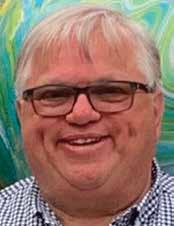
Shortly thereafter, I was informed by the U.S. State Department that an autopsy was needed and had to be done by an American doctor. So, for one of the more difficult tasks of my life, I proceeded to do the autopsy on my good friend. He had been hit in the back by a portion of the helicopter blade that had broken off. The blow caused instant death.
After the autopsy, a funeral was needed. I thought the best way to honor him was to provide a short history of his life and ministry. This was followed by a short gospel sermon on the plan of salvation, something Rick would surely desire. After the sermon, people came forward to offer testimonies of Rick’s impact on their lives. They came one after another, from many denominations and backgrounds. There were those he had helped with the helicopter, and others he had helped just by being there to assist them when he was not flying. One local Asian woman was flown urgently to Nairobi to save her vision; the operation was successful. The entire back two rows of the church were filled with members of the local Asian community. They were so grateful, and loved him very much. This was also likely the first time they heard the gospel.

Our mission used the helicopter to go to mountain areas to hold clinics. In these areas there was a good bit of illness and no road access. Some villages had never seen a wheeled vehicle but had seen a helicopter up close. We also hitched rides into Nairobi with Rick at times to pick up supplies. It was much faster than our Toyota and the scenery was amazing.
On one occasion, I had not been feeling well for about a week. I could not eat; food did not taste good. I started to become yellow. I did not notice but everyone else did. I had one long case to finish that day. A young man was slashed in the eye with a machete. The eye was okay but the eyelid was not. It took about five hours to sew him back together. Finishing that and feeling exhausted, I went to do our daily check-in on the ham radio, our only form of communication. I informed our contacts all was well.
Returning to the house, my wife asked me if I had asked for help. “Why would I need to do that?” I asked, “all is fine.” She rushed back to the radio just in time and called for the helicopter to come take me out of the bush — I was very sick. I finally realized at that point that I really WAS sick. (Doctors and nurses are not the best patients.) While awaiting the helicopter, the villagers gathered around our home and began the death wail. That was rather disconcerting. Rick arrived with the helicopter in time to take me to the hospital and barely in time to save my life. I never would have survived if not for Rick having dropped everything to come. I was in a coma for two days but made it through. Rick went back to the mission station to bring my family out.
I recovered well and went to stay in a home we rented upcountry. Very soon after I was discharged, one of the other missionaries came by with an urgent message. He stated sadly, “There was a helicopter crash and Rick was killed.” This was devastating to all of us. He was on the ground while the pilot-trainee was sling-loading building supplies for a remote church building. I was asked to come to the helicopter crash site and then to examine the helicopter. Details of the crash can still be found online: https://asn.flightsafety.org/wikibase/ wiki.php?id=32989
The next week, one of our co-workers was asked to baptize a family of four who were so touched by Rick’s life and his funeral that they all decided to follow Jesus. They were from Scotland, with two lovely girls about the age of my children. They were teachers in a local private school and had come to know Rick in the community. They had not really heard the gospel before. Their lives were changed, forever, by his testimony. They later moved to Australia and I am sure would shine their light there.
Matthew 5:14-16: “You are the light of the world. A city set on a hill cannot be hidden. Nor do people light a lamp and put it under a basket, but on a stand, and it gives light to all in the house. In the same way, let your light shine before others, so that they may see your good works and give glory to your Father who is in heaven.”
Rick was a shining light in a dark world. He demonstrated that our job as light-bearers is very important. Once we have the light of Christ in our lives, we must be able to effectively shine. If we have drawn away from God, if there is persistent sin in our lives, our light does not shine brightly. It becomes quite dim and does no good.
James 4:8 says, “Draw near to God, and he will draw near to you. Cleanse your hands, you sinners, and purify your hearts, you double-minded.”
Our light shining brightly in worship and service — whatever our profession, job or activity — can make such a difference to those around us.
Colossians 3:23-24: “Whatever you do, work at it with all your heart, as working for the Lord, not for human masters, since you know that you will receive an inheritance from the Lord as a reward. It is the Lord Christ you are serving.”
And in Daniel 12:3 we read: “Those who are wise will shine like the brightness of the heavens, and those who lead many to righteousness, like the stars for ever and ever.”
Rick was a shining example that still inspires even many years later. n
Dr. Larry Banta is an author of several books, a retired psychiatrist, and a former missionary. He served in India, Mexico and Kenya. He and his wife, Evelyn, a counselor, travel together to provide consultation and training in various international locations.
By Gary Moore
Counselor and author, Deborah Fileta, says that when she surveyed more than 1,000 married men and women, more than 96 percent of them said they believed the average person does not understand the cost of marriage going into it.
That’s a staggering number. It tells me we’re given the blanket statement that “marriage will be hard,” but we’re not really prepared to tackle those hardships when they come. We’re not trained. We’re not equipped. We’re not even aware. We don’t know what to look for. And I’d say that in the 16+ years that I’ve been coaching couples that I agree with her findings. We assume that two good people trying to do the right thing will always equal a good, strong marriage. But unfortunately, that’s simply not the case.
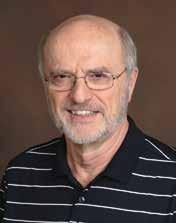
Even though marriage is one of the most significant choices we make in life, it’s the only one you’re given a license to do before you’ve actually learned how to do it! Every other major, licensed accomplishment comes by way of a substantial amount of time, energy, education, and preparation. You go through at least eight strenuous years of training to get a medical license. You have to clock numerous hours of driving to get a driver’s license. But marriage? For marriage you get a license first and hope you somehow learn to succeed along the way. I don’t know about you, but that seems a little backwards to me.
Just like anything worthwhile, marriage requires knowledge, training, effort, and sacrifice. It requires daily choices — sometimes big, mostly small, and often hard — that lead to a lifetime of love and a fulfilling marriage. But if you’re not prepared to make those choices, you can end up making the wrong decision every single time. Most people go into marriage with the goal of what marriage will do for them, rather than what they will do for their marriage. And then there’s that thing of thinking that marriage is about your happiness. It’s not about your happiness. It’s not even about you. It’s about unconditional love, which we choose to give time and time again. It’s about sacrificing, serving, giving, and forgiving, and then doing it over again.
And when the cost of marriage becomes too great, we convince ourselves we have nothing left to gain, and therefore nothing to give. It could be after a silly argument. It could be a heated moment, when words have been said that can’t be taken back. It could be in the middle of a misunderstanding. It could be in an instant when trust has been broken. It could be a time when your needs have not been understood. But no matter what it is, there will be a moment when you are given the option of two choices: self or marriage. Me or we. And in every single moment like this, a choice will have to be made.
We live in a culture that is currently questioning the very foundation of marriage, from both within the church and without. According to a survey by the Pew Charitable Trust, many millennials are on the verge of believing that marriage is a lost art –- rebelling against the idea of a permanent, lifelong relationship with another human being. They wonder, “Can I even handle marriage?”
But wait a minute. Isn’t marriage God’s design? And when God designs something, He puts the laws in place that make that something work. And in God’s economy, if you don’t follow the laws, it won’t work as it was designed to. Think about it. We were made for love by a God who made us in His image. We were made for commitment by a God who entered covenant with us. We were created to do this thing called marriage and created to do it well.
Marriage is work, but working on your marriage is the best work you will ever do. Why? Among other things, because marriage makes you better. Real marriage is not about being happy and fulfilled for the rest of our lives; it’s about the two of us becoming the best we can be from this day forward. Proverbs 27:17 teaches that, “As iron sharpens iron, so one person sharpens another.” But be forewarned — when you sharpen iron with iron, sparks can and do fly.
In his book “Sacred Marriage,” author Gary Thomas challenges men and women to realize that marriage isn’t just about happiness; it’s about holiness. Through the un-replicated commitment and intimacy of marriage, we have the opportunity for lifelong growth and maturity, practicing selflessness, forgiveness, and grace as we learn to love each other unconditionally. Two imperfect human beings exposing their realness yet loving each other still. Marriage makes us better because we learn to receive that kind of love for ourselves. For us to truly become better, we must learn to receive love as readily as we give it. Marriage isn’t just about becoming happier and feeling better; it’s about becoming better — becoming everything that God designed us to be. But ironically, in becoming better, we often find that we’ve also become happier and feel better.
Feelings come, and feelings go. And those who build the foundation of their marriage on how they feel will eventually find their marriage crumbling. I choose marriage because although I know my feelings are fickle, my faith is not. My emotions may fail me, but my choices are always up to me. I choose to love, to trust, to forgive, and to remain. It’s easy to follow our hearts, but it takes real courage to lead our hearts. n
Gary Moore served as associate pastor at Cloverdale Church of God for 15 years. He does couples’ coaching and leads couples’ workshops and retreats called MUM’s the Word. He has a weekly radio program – Life Point Plus – on KBXL 94.1FM at 8:45 a.m. on Fridays. His website at www.mutualunderstanding.net has video teachings and other resources for couples. He may be contacted at glmoore113@gmail.com.
Fill in each answer, one letter per square. Then ar range t he letters in t he highlighted squares to reveal t he name of
2. T he Book of Psalms reassures us that “T he L ord is tr ustwor thy in all he promises and ___ in all he does.”
4. In an alphabetical listing of Bible Books, this follows Ecclesiastes 3. Moses’ floating ba sket wa s made of this
By Leo Hellyer
We are living in a world of conflict. As men we are called to lead. We are called to lead in our families, churches, businesses, ministry, politics, etc. Unfortunately, for whatever reason, some men have vacated their leadership role. A lot of times, leadership is not fun, or easy. We all need to step up to the plate and become leaders in our part of society. Unfortunately, quite a few men did not have a good role model in their lives of what a man looks like as they lead.
For men to lead, they must be present, physically, and emotionally. If we, as men, do not accept our role as leader, those around us suffer and must pick up what we are not doing. For those men who did not have a good role model to follow while they were growing up, there is a significant role model who is available 24/7 and his name is Jesus.
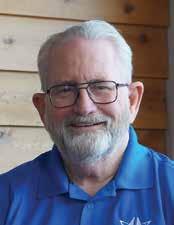
Ken Blanchard, Phil Hodges, and Phyllis Hendry, in their book “Lead Like Jesus” state that: “Leadership happens anytime we influence the thinking, behavior, or development of another person, and that Jesus is the greatest leadership role model of all time. Jesus was the epitome of Servant Leadership.” In Mark 10:45 we read, “Even the Son of Man did not come to be served, but to serve, and to give His Life as a ransom for many.”
As Christians, every day we are to strive to become more Christlike. We will never achieve that divine end, but we should always be moving toward that goal. Paul gives us great direction in Colossians 1:10 when he says, “Live a life worthy of the Lord and please Him in every way: bearing fruit in every good work, growing in the knowledge of God.”
As men, it is extremely easy for us to get distracted. Our minds wander, our eyes wander, our feet wander. Particularly when we are tired, it is easy for us to turn from the servant leader mindset and become self-centered and egotistical. We must make a concerted effort to stay on the course that God wants us on and not allow anything to veer us off course.

We need to pay a considerable amount of attention to our mindset and to develop our mindset as close to Christ Jesus as we can. When we lead, wherever we are, whoever we are leading, we need to get our direction, foundation, insight, and compassionate love from Jesus Christ. As we lead, as much as we can we must take on the habit of obeying God and expressing His unconditional love. Once again, in Colossians 3:12-14, Paul instructs us that “As God’s chosen people, holy and dearly loved, clothe yourselves with compassion, kindness, humility, gentleness and patience. Bear with each other and forgive one another if any of you has a grievance against someone. Forgive as the Lord forgave you. And over all these virtues put on love, which binds them all together in perfect unity.”
It is not productive if we do not lead with love. Without love, our leadership is off course. Without love, our leadership becomes overly directive and judgmental. Without love, our leadership becomes divisive instead of unifying. Without love, our leadership destroys instead of building up. How we lead can affect those who we are leading for the rest of their lives either positively or negatively.
We need to lead as God directs us, not how the world skews us. We must live in this world, but we cannot allow this world to direct our path. Paul addresses this in Romans: 12:2, when he says “Do not conform to the pattern of this world, but be transformed by the renewing of your mind. Then you will be able to test and approve what God’s will is — his good, pleasing and perfect will.”
As we interact with people around us, and as we react to the “stuff of life” that we face, we have choices to make. There is a great statement that applies perfectly: “Life is 10% what happens to you and 90% how you respond to it.”
When less than desirable things happen to us, that should not define who we are or how we react to other people. If our foundation of life is based on Jesus Christ, we can follow His direction,

exercise His compassion, and react to life situations and relationships with His grace. If we will go to Jesus as a mentor, as the blueprint for manhood, then our life and our leadership — in all facets of our existence — will be based on a solid foundation of compassion, service, grace, consideration, and love.
Near the end of the book “Lead Like Jesus,” the authors include the words of Paul from 1 Timothy 1:5 when he says, “The goal of this command is love, which comes from a pure heart and a good conscience and a sincere faith.” When we lead, we need to lead from our Christ-based heart, not our ego. Our leadership must be built on a foundation of godly love, not on a power trip. We need to lead with understanding and compassion instead of power, might, and anger.
Many greatly influential men are openly sharing who is the foundation of their leadership style. Football coaches and players, generals and admirals, political leaders, CEOs, musicians, the military’s tier one special missions units, to name a few, are all making it clear that the foundation of their lives is Jesus Christ.
Men, let Jesus be your mentor, guide, and savior, and the foundation for your life in all its facets. n
Leo Hellyer is a non-staff pastor with a local church and has been married to his wife Norma for 50 years. The couple volunteered with the Boise FamilyLife Ministry Team for 20 years. Leo has also been serving with Boise Rescue Mis sion Ministries for more than 20 years and is currently serving at the River of Life Rescue Mission. He is president and chief firearms instructor with Helping Hands Firearms Training LLC. If you have questions about Real Man’s Toolbox, or need other assistance, he may be reached at silverplate426@msn.com or (208) 340-5544.
